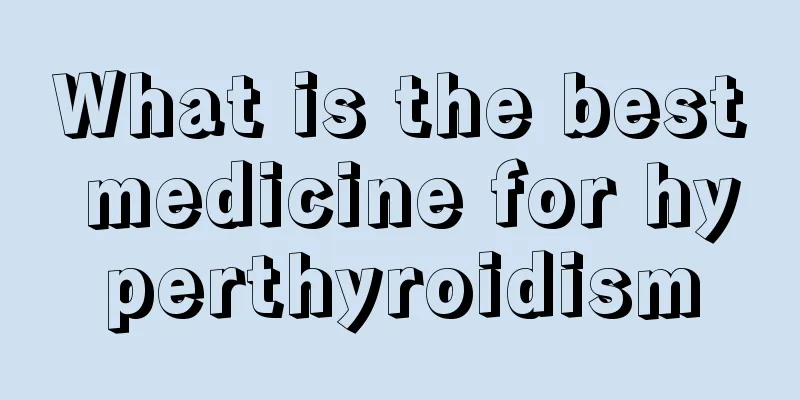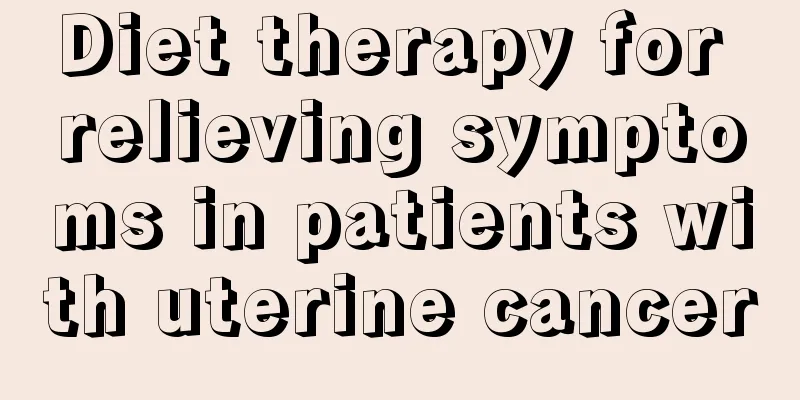What is the best medicine for hyperthyroidism

|
Hyperthyroidism is a very disturbing disease that not only affects our emotions, but also has a huge impact on our daily lives. We should pay enough attention to the treatment of hyperthyroidism and go to the endocrinology department for diagnosis and reexamination in time to avoid physical abnormalities. You should also pay attention to a light diet and avoid spicy and greasy foods. So, what is the best medicine for hyperthyroidism? There are three methods for the treatment of hyperthyroidism: antithyroid drug therapy, radioactive iodine therapy and surgical treatment. 1. There are two types of antithyroid drugs - imidazoles and thiouracils. The representative drugs are methimazole (also known as "thimazole") and propylthiouracil (also known as "propylthiouracil"). 2. Drug treatment is suitable for pregnant women with hyperthyroidism, children, and patients with mild thyroid enlargement. Treatment generally takes 1 to 2 years, and the drug dosage needs to be increased or decreased during treatment according to the thyroid function. Drug treatment has some side effects, including granulocytopenia, drug allergy, impaired liver function, joint pain and vasculitis. The side effects of drugs need to be closely monitored in the early stage of drug treatment, especially granulocytopenia. Patients need to be warned that if they have fever and/or sore throat, they need to check their granulocytes immediately to determine whether granulocytopenia occurs. Once it occurs. Immediately discontinue emergency medication. Another disadvantage of drug treatment is the high relapse rate after discontinuation of medication. Both radioactive iodine therapy and surgical treatment are destructive treatments, and hyperthyroidism is not likely to recur. Radioactive iodine is suitable for patients with moderate thyroid enlargement or recurrence of hyperthyroidism. Doctors calculate the radiation dose required for each patient based on the patient's thyroid gland's uptake rate of radioactive iodine. Radioactive iodine is absolutely contraindicated in pregnant and lactating women. Because radioactive iodine has a delayed effect, the incidence of hypothyroidism is 3% to 5% per year over time. Radioactive iodine therapy is not suitable for hyperthyroid patients with thyroid eye disease because the eye disease may worsen after treatment. 3. Surgical treatment is suitable for those with significant thyroid enlargement, or those who are highly suspected of thyroid malignancy, or those whose thyroid enlargement compresses the trachea and causes breathing difficulties. Before surgery, medication is needed to control thyroid function within the normal range, and oral compound iodine solution is also required as preoperative preparation. |
>>: Can hyperthyroidism be cured
Recommend
What are the side effects of excessive vitamin C
I believe that all female friends know the import...
How to cut nails correctly_
Some people will find bacterial infections or eve...
How long can anal fistula be delayed
Anal fistula usually cannot heal on its own, and ...
Is it normal to have a headache after having chickenpox
In ancient times, chickenpox was a skin disease w...
Does early liver cancer need immunotherapy after surgery? Pay attention to these two points in the early treatment of liver cancer
Whether immunotherapy is needed after surgery for...
What toothpaste is good for cavities?
When it comes to tooth decay, in fact, in daily l...
Things to note when doing aerobics
Aerobics is women's favorite. When doing aero...
Closed blackheads cannot be squeezed out
Skin diseases are common among people, and some p...
What causes cramps in the little finger
Everyone needs to work, study and do things const...
How to deal with the digestive tract reaction of nasogastric feeding for esophageal cancer
As the superiority of enteral nutrition becomes i...
Can drinking boiled water in the morning help you lose weight? And how?
Boiled water may seem ordinary, but it also conta...
Is there any hope for nasopharyngeal carcinoma that has metastasized to the liver after chemotherapy and radiotherapy in the middle and late stages?
Is there any hope for nasopharyngeal carcinoma th...
How to wash oil stains off jeans
In daily life, our daily activities, food, clothi...
How to wash ink from clothes
I believe that many people must have had ink on t...
Causes of Pityriasis Rosea
There are many types of diseases, and different d...









